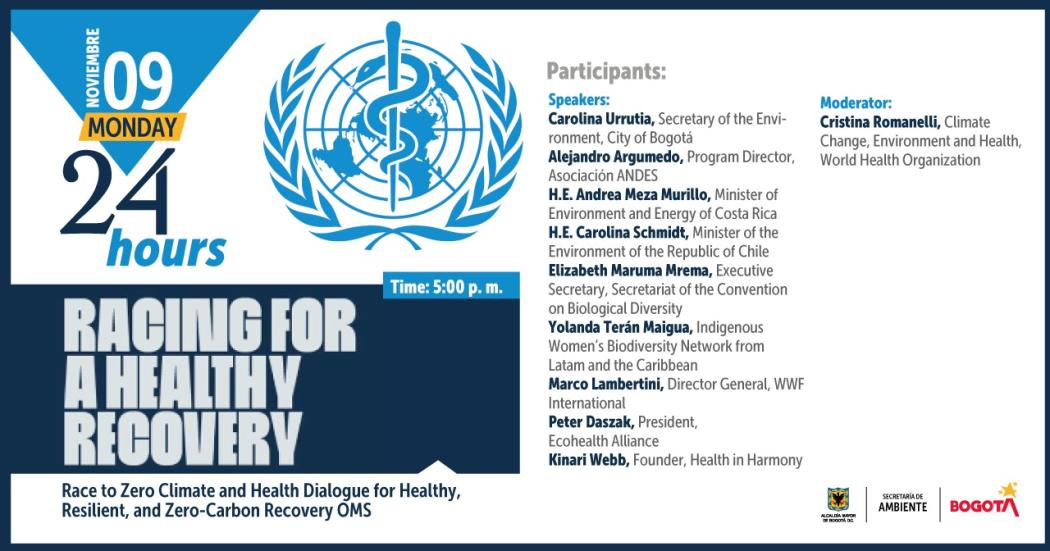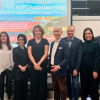The Race to Zero event is a global alliance to join forces towards a carbon neutral economy in 2050, in its 2020 agenda it has included a series of talks organized by the United Nations Framework Convention on Climate Change (UNFCCC). In this 24-hour virtual forum, the Secretary of the Environment of Bogotá Carolina Urrutia participated as a panelist at the Dialogue on Climate and Health forum.
Urrutia shared the space with other world environmental leaders: Andrea Meza Murillo, Minister of Environment and Energy of Costa Rica; Carolina Scmidt, Minister of the Environment of Chile; Elizabeth Maruma, Executive Secretary of the Secretariat for the Convention on Biological Diversity; Alejandro Argumedo, director of the ANDES association; Yolanda Terán, representative of the Network of Indigenous Women for Biodiversity in Latin America and the Caribbean, Marco Lambertini, Director General of WWF; Peter Daszak, president of the Ecohealth Alliance and Kinari Webb, founder of the Health in Harmony organization with whom she spoke about innovation in five areas of action: nature; adaptation and resilience; energy transition; carbon-free transportation; and finances.
The goal of the forum was to visualize how a healthy and equitable recovery from COVID-19 can fuel the rapid decarbonization of the global economy. The first intervention was that of Elizabeth Maruma, who spoke about the importance of managing the health issue in an interconnected way with the environment, to which Peter Daszak complemented by saying, “In the history of humanity, pandemics very often are caused by viruses that have mutated from animals ”.
In her turn, Bogotá's Environment Secretary Carolina Urrutia explained how nature-based solutions are an answer not only for the future but also for the present, “Science has evolved enough so that the next step can be taken; we need to apply the solutions now ”. Another issue that was discussed was the close relationship between cities and agricultural production in rural regions and how Bogotá has advanced towards a response to solve this environmental problem, “One of the great challenges that the city has and that we are working on, it is to redefine what urban biodiversity means and the relationship of coexistence that we have with agriculture ”.
At the end of the discussion, a common conclusion was reached on the importance of the relationship between biodiversity, climate change and health, recognizing that any strategy to address one of these issues in particular must take into consideration the other two factors, since they are always interrelated.




